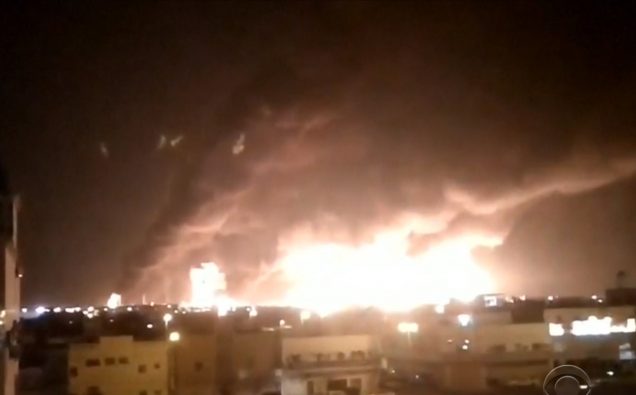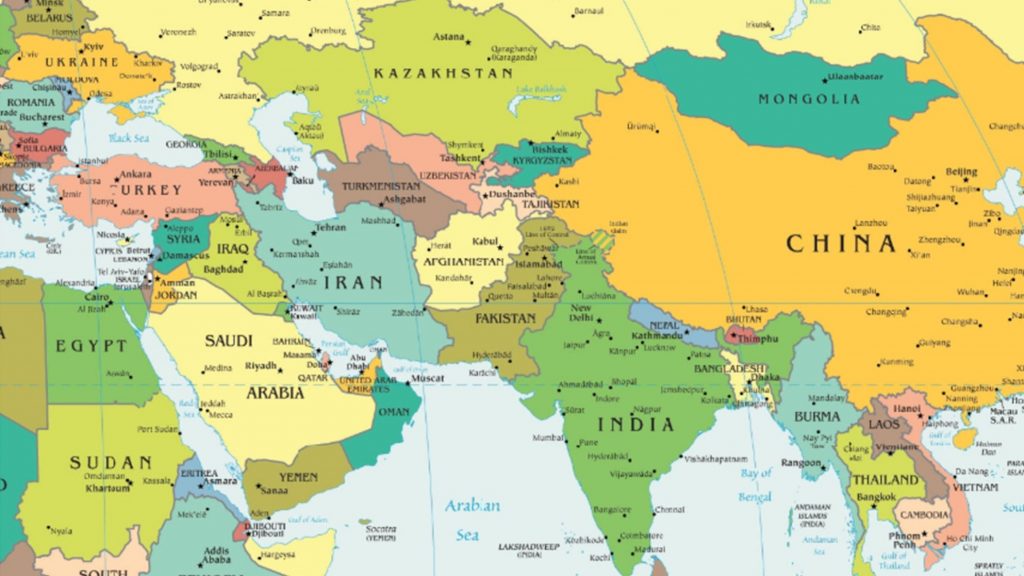
Tensions between Saudi Arabia and Iran soared dramatically after Yemen’s Houthis rebels conducted drone attacks on kingdom’s two major oil processing plants on Saturday.
The Houthi group – which has links with Iran – has claimed responsibility for the worst attack since the Houthi-Saudi Arabia conflict started in 2015.
The attacks have cut the Saudi kingdom’s output down by 5.7 million barrels per day (bpd), according to a statement from state-run oil company Saudi Aramco. The damaged processing plants are a source of 8 million barrels of oil a day – about 10% of world’s daily oil supply.
The drastic halt in oil production has also led to speculations about rise in the prices of the crude oil in the international market.
Saudi Arabia is the world’s biggest exporter, shipping more than 7 million barrels of oil to global destinations every day, and for years has served as the supplier of last resort to markets.
Analysts fear two immediate ramifications of the attacks on the Saudi oil wealth – a rise in energy prices and escalation of hostilities in Yemen.
US Secretary of State Mike Pompeo has blamed Iran for the attacks, writing on Twitter that there was “no evidence the attacks came from Yemen”.
“Amid all the calls for de-escalation, Iran has now launched an unprecedented attack on the world’s energy supply,” Pompeo said.
“Tehran is behind nearly 100 attacks on Saudi Arabia while Rouhani and Zarif pretend to engage in diplomacy,” Pompeo wrote on Twitter. “Amid all the calls for de-escalation, Iran has now launched an unprecedented attack on the world’s energy supply. There is no evidence the attacks came from Yemen.”
Saudi Crown Prince Mohammed bin Salman told US President Donald Trump by telephone that Riyadh had the will and capability “to confront and deal with this terrorist aggression”, according to Saudi state news agency SPA.
The United States condemned the attacks and Trump told the crown prince that Washington was ready to work with the kingdom to guarantee its security, according to the White House. The US Department of Energy also said it was ready to release oil from its strategic petroleum reserve if necessary.
Iran has rejected the U.S. claims, and warned that all the American bases and aircraft carriers in the region are within the range of Iranian missiles.
“Everybody should know that all American bases and their aircraft carriers in a distance of up to 2,000 kilometers around Iran are within the range of our missiles,” the head of Iran’s Revolutionary Guards Corps Aerospace Force Amirali Hajizadeh said on Sunday.
The semi-official Tasnim news agency also quoted him saying that “Iran has always been ready for a “full-fledged” war”, without mentioning Saturday’s attacks in Saudi Arabia. One of the plants attacked is the world’s biggest petroleum processing facility.
The Saudi Kingdom, leading a Muslim coalition that intervened in Yemen in 2015 against the Houthis, has blamed regional rival Iran for previous attacks, which Tehran denies.
“This is a relatively new situation for the Saudis. For the longest time they have never had any real fears that their oil facilities would be struck from the air,” Kamran Bokhari, founding director of the Washington-based Center for Global Policy says.

















